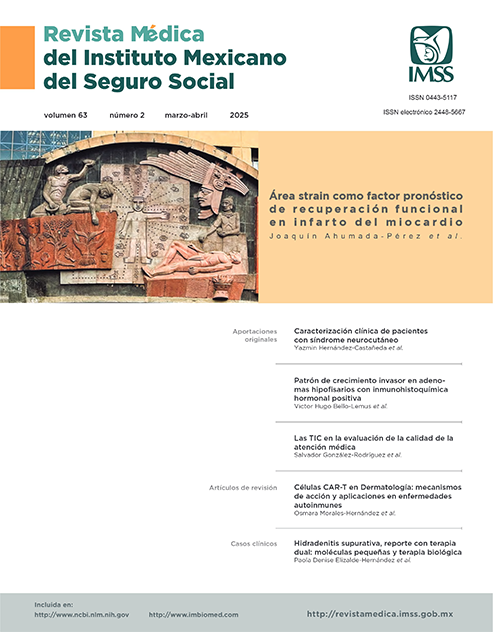Comment on the article “Severe coronavirus-2 infection background for cardiovascular complications”
Main Article Content
Keywords
Post-Acute COVID-19 Syndrome, Thrombosis, Heart Disease Risk Factors, COVID-19
Abstract
Current information is presented on a phenomenon that occurs in patients who had COVID-19 that could contribute to long-term cardiovascular risk. It deals with the mechanisms underlying cardiovascular and coagulation alterations that perpetuate cardiac symptoms caused by alterations induced by the virus or by myocardial inflammation, such as cardiac endothelial dysfunction, which could cause vascular microthrombosis. The intentional search for this in patients under follow-up becomes relevant since there is specific treatment and long-term complications, such as pulmonary hypertension and right heart failure, could be prevented.
References
Gonzalez AR, Huallpa-Rodríguez S, Hernandez-Gonzalez MA. Infección severa por coronavirus-2, antecedente para complicaciones cardiovasculares. Rev Med Inst Mex Seguro Soc. 2024;62(2):1-7. doi: 10.5281/zenodo.10711339
Greenhalgh T, Knight M, A’Court C, et al. Management of post-acute covid-19 in primary care. BMJ. 2020;370:m3026. doi: 10.1136/bmj.m3026
Castanares-Zapatero D, Chalon P, Kohn L, et al. Pathophysiology and mechanism of long COVID: a comprehensive review. Ann Med. 2022;54(1):1473- 1487. doi: 10.1080/07853890.2022.2076901
Raman B, Bluemke DA, Lüscher TF, et al. Long COVID: post-acute sequelae of COVID-19 with a cardiovascular focus. Eur Heart J. 2022;43(11):1157- 1172. doi: 10.1093/eurheartj/ehac031
Logue JK, Franko NM, McCulloch DJ, et al. Sequelae in Adults at 6 Months After COVID-19 Infection. JAMA Netw Open. 2021;4(2):e210830. doi: 10.1001/jamanetworkopen.2021.0830. Erratum in: JAMA Netw Open. 2021 Mar 1;4(3):e214572. doi: 10.1001/jamanetworkopen.2021.4572
Sollini M, Ciccarelli M, Cecconi M, et al. Vasculitis changes in COVID-19 survivors with persistent symptoms: an [18F]FDG-PET/CT study. Eur J Nucl Med Mol Imaging. 2021;48(5):1460-1466. doi: 10.1007/s00259-020-05084-3
Wichmann D, Sperhake JP, Lütgehetmann M, et al. Autopsy Findings and Venous Thromboembolism in Patients With COVID-19: A Prospective Cohort Study. Ann Intern Med. 2020;173(4):268-277. doi: 10.7326/M20-2003
Ackermann M, Verleden SE, Kuehnel M, et al. Pulmonary Vascular Endothelialitis, Thrombosis, and Angiogenesis in Covid-19. N Engl J Med. 2020;383(2):120- 128. doi: 10.1056/NEJMoa2015432
Overstad S, Tjonnfjord E, Garabet L, et al. Venous thromboembolism and coronavirus disease 2019 in an ambulatory care setting A report of 4 cases. Thromb Res. 2020;194:116-118. doi: 10.1016/j. thromres.2020.06.032
Gervaise A, Bouzad C, Peroux E, et al. Acute pulmonary embolism in non-hospitalized COVID-19 patients referred to CTPA by the emergency department. Eur Radiol. 2020;30(11):6170-6177. doi: 10.1007/s00330-020-06977-5
Uppuluri EM, Shapiro NL. Development of pulmonary embolism in a nonhospitalized patient with COVID-19 who did not receive venous thromboembolism prophylaxis. Am J Health Syst Pharm. 2020; 77(23):1957-1960. doi: 10.1093/ajhp/zxaa286


